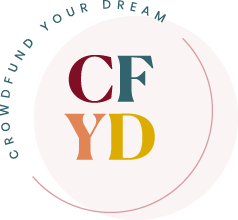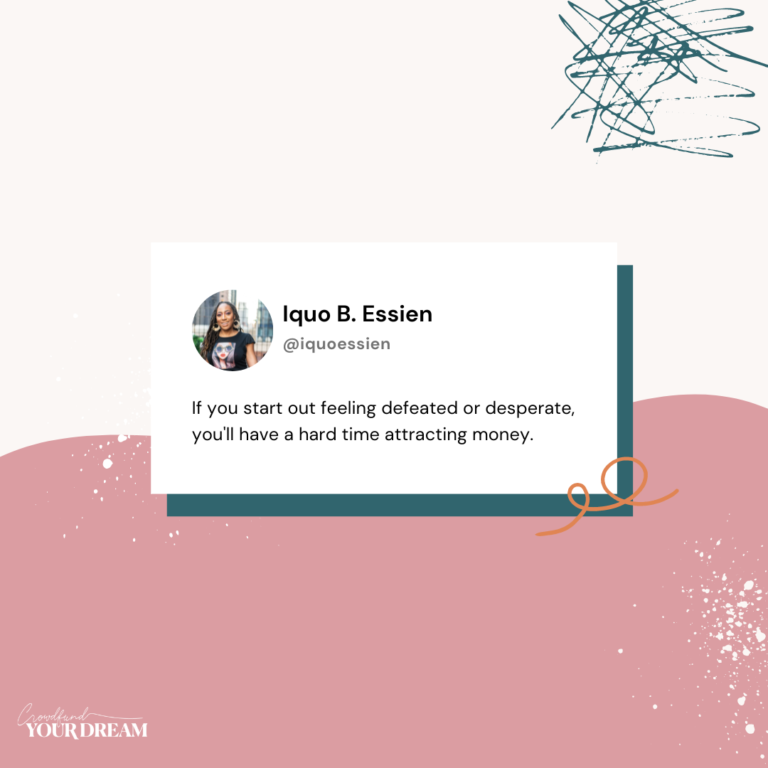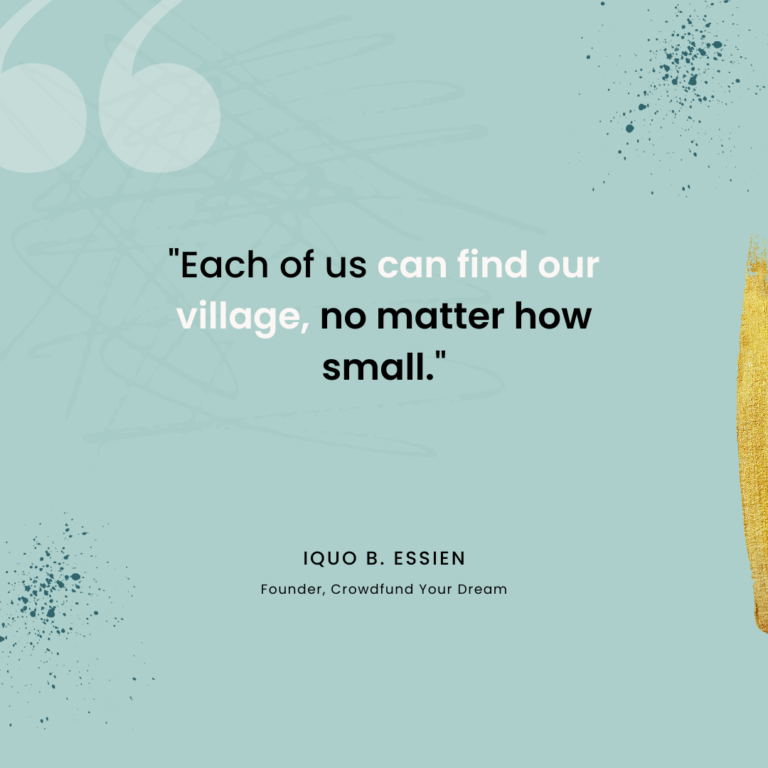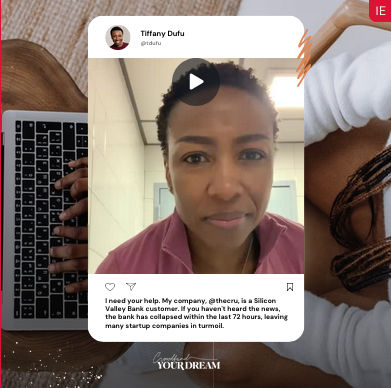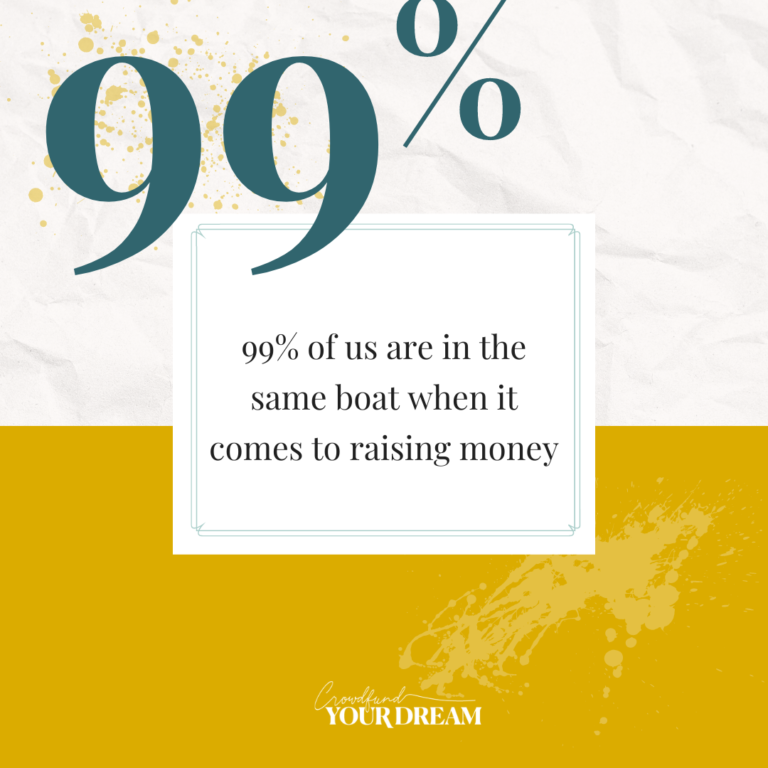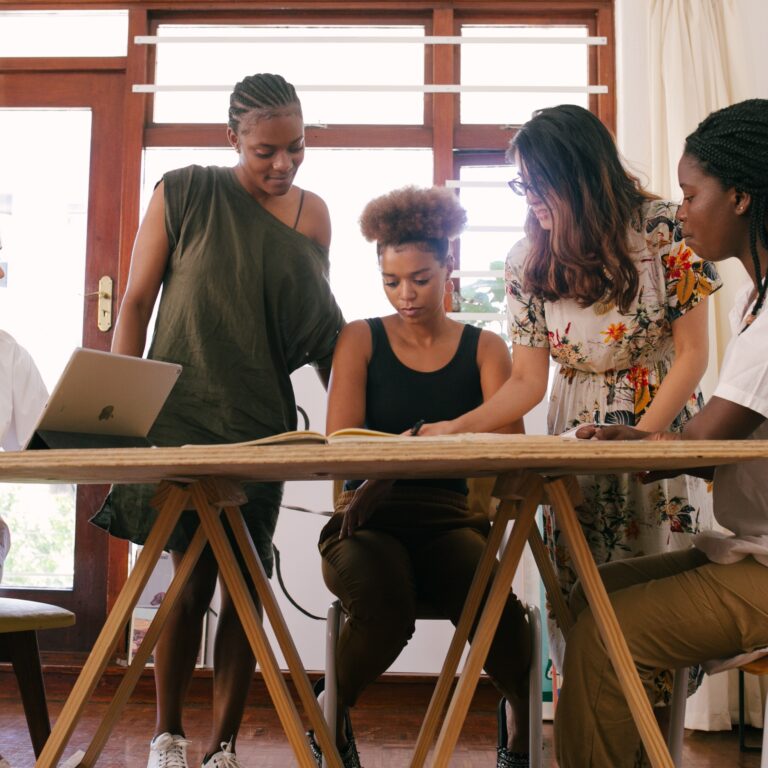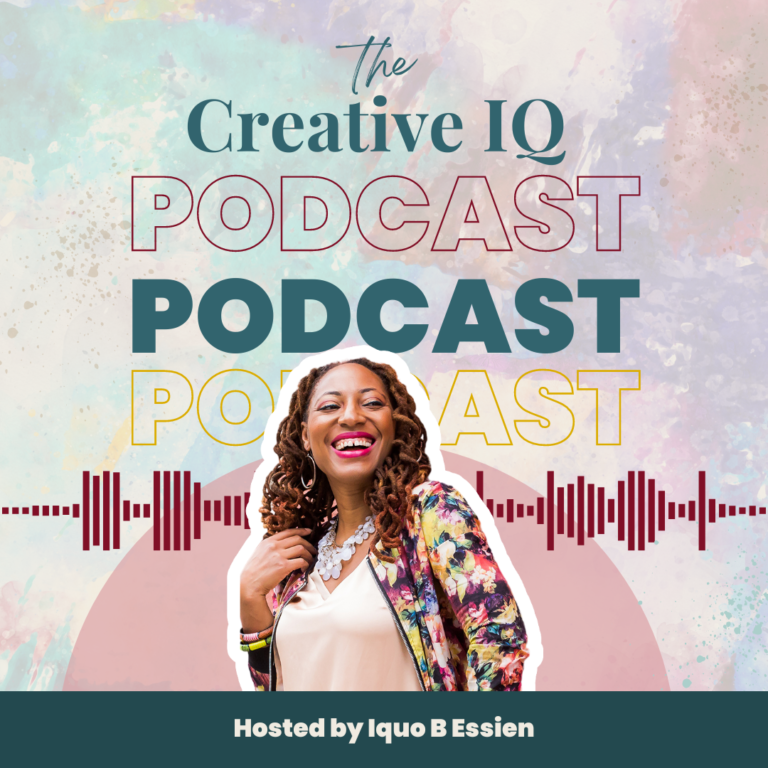Iquo B. Essien on the porch of her late grandmother’s home in Calabar, Nigeria
In Christmas 2019, I boarded a flight to Nigeria, by way of Cairo, to visit family. It had been a few years since I’d seen them, and of course I’d put on a few pounds, which everyone let me know. (There’s a reason, but I’ll save my gut health issues for another post!) The older I get, the more it occurs to me that, back home, I’m always somebody’s child.
Respect for elders is paramount in Nigerian culture—and certainly so for the Ibibio, my family’s ethnic group. My parents met as college students in the States and, growing up, my parents often scolded me for talking back, being a “smart alec,” and generally not respecting the incontrovertible truth that my elders, men, and anyone in authority was always right.
I don’t think I was ever trying to be disrespectful; but having learned what I did about the patriarchy, sexism, and inequality, I simply had a difference of opinion.
My late mother Elizabeth was the same way. A devout Catholic, wife, mother, and working woman, she managed to blaze her own trail in every space she found herself in. As a girl, my late grandfather, Chief Paul Bassey Okon, sent her to school at a time when the benefits of girls’ education were not yet known in Nigeria. He was an educator and businessman turned chief, one of the first Ibibio people to receive a Western education. My mother was the direct beneficiary of his legacy. She later emigrated to the United States, went to college, got a Master’s, and became a civil servant, working to support our young family of 5 (with me on the way!) as my dad finished up his doctorate.
Within one generation, my parents moved us from inner-city downtown Albany to the suburbs and, when I was just 10 years old, my mother started a dance/cultural troupe in the basement of our home. She became one of the first people in our burgeoning African immigrant community to share culture through music, dance, drumming, fashion, food, and storytelling. She had a larger than life personality so, when she got cancer and passed away my senior year of college, she left behind an incredible legacy.

Part of that legacy was her commitment to serving her people back home.
As a child, I watched in wonder as my mother bought armfuls of gifts that she piled in the guest room closet for months on end. There were bags of clothes, leftover boxes of Avon lotion that had gone unsold, and cartons of shoes from one of the local discount retailers. She stuffed the odd packages—what my father called “her junks”—into the closet, which heaved a great sigh anytime she opened its bulging door.
Every couple of years, before our regular trips back home, she sent the bags tumbling out of the closet and asked my sisters and me to help her pack. Like little soldiers, we trooped downstairs to the basement carrying cartons of items to Mommy, who sat in a green wooden chair surrounded by a half-dozen gaping suitcases lined with cheap bed sheets. With a layer of sweat above her brow, she packed every single thing—a miraculous feat that sometimes defied the laws of physics. And when she was finished packing, we piled the suitcases and ourselves into the station wagon, the car so overloaded the rear bumper kissed the ground as my father drove us to JFK Airport.
Somehow we managed to get everything on board the plane, across the ocean, and off the conveyor belt at Murtala Muhammed Airport, where we spotted our suitcases by the strips of red cloth Mommy had tied to the handles. For all her 4 feet 11 inches, she was the blazing fire around which we all gathered. And when the whole town descended on our home in Uyo, she handed out gifts—or money, dispensed from her heavy shoulder bag between a damp thumb and index finger—to anyone who asked.

After my mother died, it was my older sisters who dealt with the will and the insurance and the splitting up of things. I was still in my senior year of college at Stanford and, quite frankly, too numb to process anything. We all got a bit of money she had left behind, our names on the house she built for us back home, as well as an additional empty plot of land in Uyo, Akwa Ibom State.
About a year and a half ago, 17 years after she passed, my sisters and I learned quite by accident that another family member was trying to sell that land.
So when I flew to Nigeria, for Christmas 2019, securing the land was a matter of urgency. It wasn’t a straightforward process, as things never are back home, and it turned out that not only was a family member trying to sell the land, but local area boys had commandeered and tried to sell it fraudulently as well. As soon as those virtual fires were put out, I took a trip to Calabar to visit my uncle who lived next door to my late grandmother’s house on the plot of land first purchased by my late grandfather.
During the colonial era, Grandpa Paul had left Akwa Ibom to attend and teach at Duke Town School in Calabar, home of the Efik people. After his death, my grandmother Patricia lived out most of her days there. And in the course of my visit, I learned that another family member was planning to sell that very plot of land my grandfather first bought.

I must say that this news, after what I’d already gone through with the other land, almost broke me.
Much to my dismay, I imagined it could be my last time seeing the land again. Fired up, I lobbied my family member to stop the sale, sharing my long-term plans to convert the house and land into a living memoir to our family history (more on this later). And while I was able to avert the sale then, I promised to purchase the land from them to make sure it stayed in our family forever. But the pandemic year hit and, in December 2020, I felt like this dream was a distant reality.
Cut to me, last week, launching a campaign to save my family’s land and fund a dream I’d never shared publicly before this moment—turning the memoir of my mother I’d been writing into a gallery exhibition.
It’s impossible to encapsulate just how much the past year has forced me to continuously reevaluate the entire way I live my life.
I’ve been gripped by the deaths of elders that have robbed global communities and cultures of precious bonds and repositories of language and tradition. This project, and my past work, is my attempt to preserve not only my family’s story, but my mother’s legacy and her belief that our future was bound up with our people and our land. I must also note that this land will also be the site of filming of my debut feature film inspired by my relationship with both my mother and grandmother.
If the ancestors are listening, may they pave the way.



